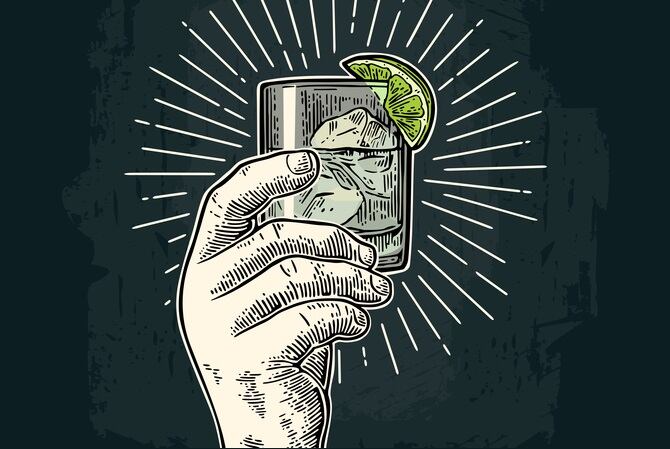The tongue-in-cheek posts included comments like ‘Shut up liver, you’re fine! Gin?’ and ‘'A banana has 150 calories, a G&T has 110 calories. Case closed.'
Following complaints from the Aberdeenshire Alcohol and Drug Partnership, The Advertising Standards Authority (ASA), upheld challenges that the series was irresponsible on several counts: for encouraging excessive drinking, linking alcohol to sexual success, and implying alcohol had therapeutic qualities. One post was also criticised for making comparative nutrition claims.
Promoting gin = advertising
The Scottish Gin Society is a website where drinkers can ‘share appreciation for Scottish gins’, sharing round-ups of tastings and events. It does not sell products and membership is not monetised. It argued that the Facebook posts were not advertisements and did not fall within the remit of the advertising code as there was no product or service to purchase.
But the Advertising Standards Authority (ASA) said that its Facebook posts still fall within the remit of the advertising code, because they are connected to the supply of Scottish gin.
The Scottish Gin Society has removed the posts: but slams the ruling as 'the most po-faced, fun-free, nanny state judgement imaginable'.
'We'll be nominating the ASA for the 'humour bypass award'
A spokesman for the Scottish Gin Society said: “The ASA freely admits in its judgement that these posts were ‘light-hearted and humorous’ and they aren’t even adverts – nor did we write them. They are re-posts of funny memes to members by a not-for-profit organisation so shouldn’t fall under the ASA’s remit.
“We completely support responsible drinking but if this is justice, I’m a Long Island Iced Tea!
“Gin is a huge and booming Scottish success story, with exports worth about £0.5bn. We have 500 people celebrating the Scottish Gin Awards later this month and we’ll be nominating the ASA for the ‘Humour Bypass Award’.”
Here’s the text of some of the Facebook posts – and the ASA’s take on why they break the rules. You can vote at the end of the page as to whether you think the posts were acceptable or not.
“This gin and tonic has 91 calories. A banana has 105 calories. My doctor told me to make the healthy choice. I love my doctor.”
ASA: “Given the presentation and the invitation to make a decision between the two items, we considered that consumers would understand the graphic to be making a favourable comparison between the calorific content of a gin and tonic and that of a banana.
"The ad therefore made a “reduced energy” comparative nutrition claim.
"We considered that alcoholic-mixed drinks and fruits did not fall into the same food category and therefore concluded that the comparative nutrition claim breached the Code.”
“You’ll never guess what some people use to help with period pain…A gin and tonic may be able to settle nerve disturbances and period cramps when nothing else can”. And: “Gin distilled for the eradication of seemingly incurable sadness”
ASA: "We acknowledged that the captions of the ads were presented in a light-hearted tone.
"Nonetheless, the claims still implied that gin could help people overcome emotional problems, and treat depression and pain, and that the ads therefore suggested that gin had therapeutic qualities and could help to treat health conditions."
“Healthy eating and exercise make you look better naked. So does gin. Your choice”
ASA: “Although those viewing the posts would understand the intention behind them as light-hearted and humorous, we nonetheless considered they had the effect of suggesting alcohol could enhance attractiveness and therefore lead to sexual success.”
“Shut up liver, you’re fine! Gin?” And: “This is Bill. Bill like gin. Bill has chosen to follow Ginuary, not dry January. Bill knows January is a long month. Bill is Smart. Be like Bill.”
ASA: “Although those viewing the posts would understand the intention behind them as light-hearted and humorous, we nonetheless considered they had the effect of condoning and encouraging excessive drinking.”

